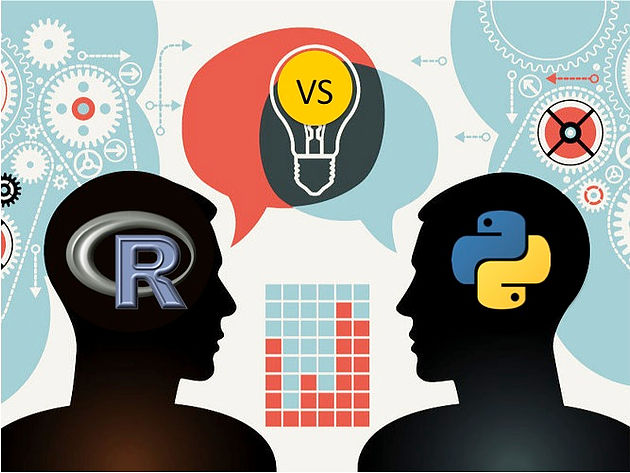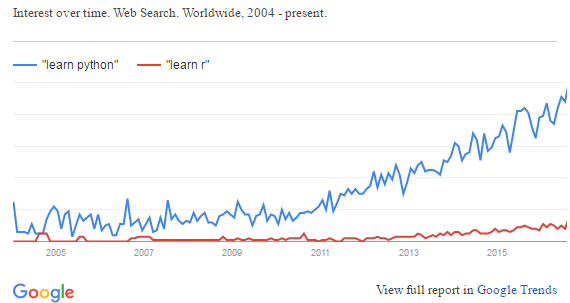R vs Python. Which language should you choose?
R is great for mathematical people. Think of R as spreadsheets on steroids. A lot of people progress from spreadsheets to R. These people are usually statisticians at heart.
Python, of the other hand, is more flexible. It is not as hard to learn, and it can be applied in most areas, apart from statistics and math. Are you more logical than mathematical? Do you think in terms of processes rather than formulas? Do you have a computer science background? Than Python is for you.

Many articles out there praise one over another.
Many people base their decision about what language to choose on their perception of what is in demand on the job market. Many articles out there praise one over another.
R vs Python – Job Market Trends
I’ve gathered 3321 job descriptions of positions that require working with data in Canada and the US, over the past year. I looked on LinkedIn.com, Workopolis.com and Indeed.com. From this little dataset, Python is shown to be almost 5 times as popular as R. Industries that hire people with Python, R or both, include: finance, consulting, telecommunications, and software.
Some of the job titles that require Python:
-
Data architect
-
Data analyst
-
Data engineer
-
Data scientist
-
Developer
-
Manager
Some of the job titles that require R:
-
Data analyst
-
Data scientist
-
Investment analyst
-
Manager
-
Tax Staff
-
Scientist
There is some overlap, and also some important differences. But you get the general idea.
Trying to be popular on the job market isn’t easy. It is a constantly evolving environment, a little like the stock market. When something goes into high demand, it quickly becomes surplus.
Source: click here
Building a career isn’t like bidding on the stock market. It is more like building a company. If you were a fruit and veg seller and you happened to hear from a corner shop owner that swimming suits are in high demand, and are bringing in the money, you wouldn’t try to sell swimming suits, right? It might just be a seasonal trend.
Likewise, if you are trying to learn Python and it does not align at all with what you are doing right now, employers will see you as a fruit seller who is marketing swimming suits. So think about what it is that you are doing right now, and how learning either of these languages might improve your abilities.
If you are currently working in data science, which language do you use? Share in comments.
Click here for source.

